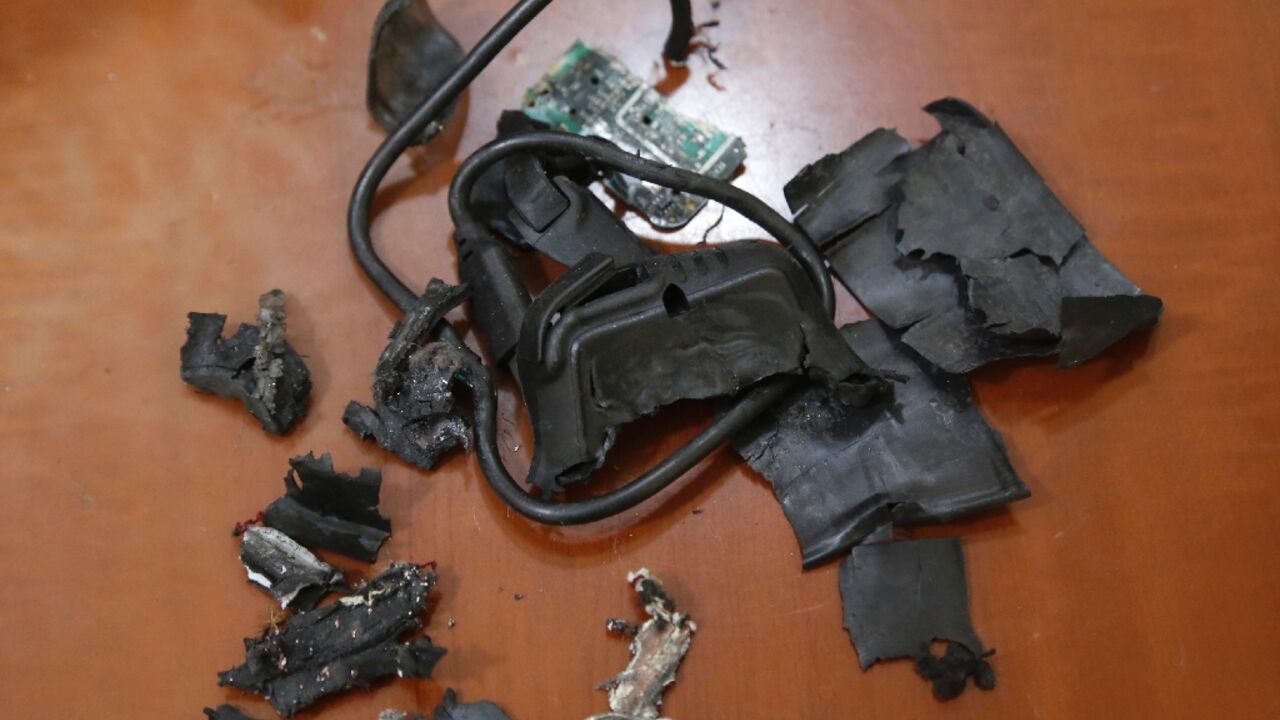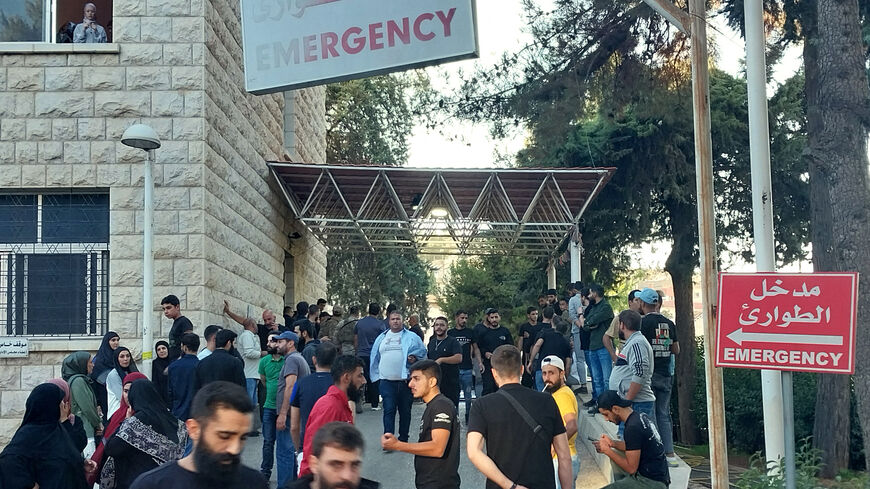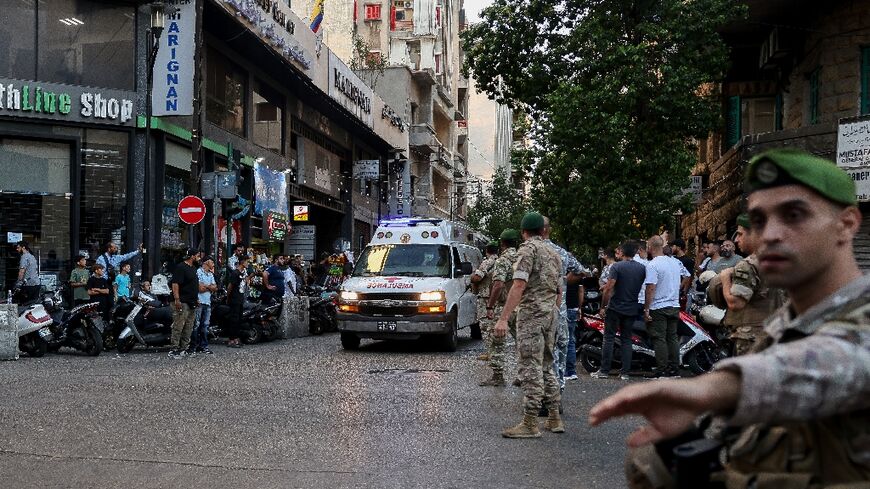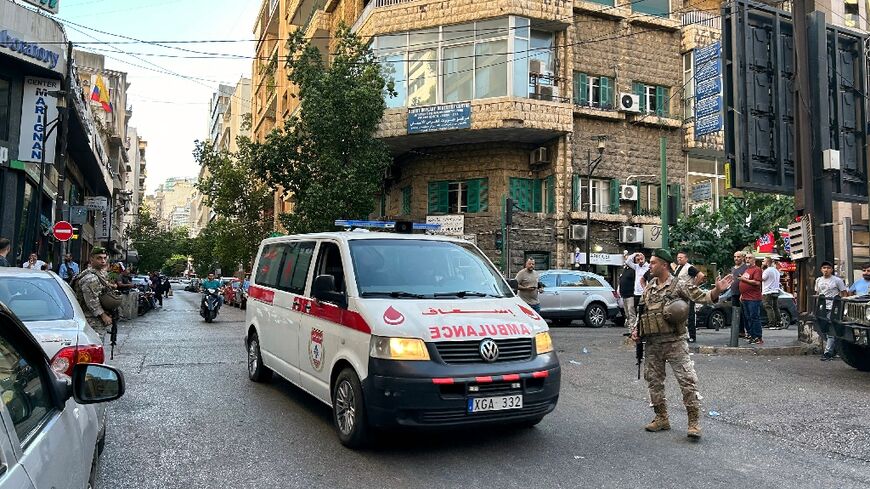Pager explosions deal heavy blow to Hezbollah comms network: analysts

The simultaneous explosion of hundreds of pagers used by Hezbollah members has massively hindered the group's communications and could undermine its operations against Israel in Lebanon's south, analysts said.
The wireless devices used by Hezbollah combatants, health workers and administrative staff exploded across Lebanon on Tuesday killing 12 people and wounding around 2,800, according to official figures.
The nationwide blasts marked the culmination of a series of escalating attacks on Hezbollah targets blamed on or claimed by Israel -- including a July air strike that killed senior military commander Fuad Shukr in Beirut's southern suburbs.
The pager blasts, described by a source close to Hezbollah as a "major blow", came hours after Israel said it was broadening the aims of the Gaza war to include its fight against Hezbollah on its northern border.
Hezbollah blamed the attacks on Israel, which has neither confirmed nor denied involvement in Tuesday's explosions.
- Parallel network -
Hezbollah began trading near-daily fire with Israel in support of its ally Hamas after the Palestinian militant group's October 7 attack on Israel triggered the Gaza war.
Shortly afterwards, the group asked its members to avoid using mobile phones that could be compromised by Israel, which has for months been conducting targeted air strikes against its fighters.
Tuesday's blasts hit a newly imported batch of pagers, a security source told AFP requesting anonymity to discuss sensitive matters.
Hezbollah avoids using Lebanon's state-run telecommunications network because it has been breached by Israel, the security source said.
The pagers are used "to summon fighters to the front lines, tell administrative officials or health personnel when they are needed, but also to warn of Israeli drones flying overhead," he said.
Military analyst Hisham Jaber, a retired Lebanese general, downplayed the pagers' importance, because Hezbollah "has other secret means of communication".
This includes "an internal telecommunications network" that runs parallel to Lebanon's public landlines and has been used for years by commanders and rank and file alike.
But the security source said the group "suspects that part of this network could have been infiltrated by Israel in the south".
Analysts said Hezbollah faced a massive task restoring confidence in the security of its communications.
"It's clearly a technological and security breach," said Amal Saad, a Hezbollah researcher and lecturer at Britain's Cardiff University
Hezbollah "will have to find ways to counter this," she said, but "it's not easy to find other sorts of very primitive means that Israel can't rig. You can rig anything."
Heiko Wimmen, project director of the International Crisis Group (ICG) for Iraq, Syria and Lebanon, told AFP Hezbollah "have to now evaluate their communications system, to what extent they can still rely on the pagers they still have... and find alternatives to it".
- Personnel losses -
The pager blast deaths add to Hezbollah's losses in exchanges of fire with Israel, which total 414 since October.
"A lot of people were disabled, we're probably talking about hundreds of people that... will not be able to fill the roles that they have in the party. Of course, that is very disruptive," Wimmen said.
Jaber said the casualties represented only a fraction of Hezbollah's fighting force, with no major political figure wounded in the blasts.
"We are talking about nearly 3,000 wounded while the party has 50,000 fighters," he said.
But the son of Hezbollah lawmaker Ali Ammar was killed, while the sons of member of parliament Hassan Fadlallah and Hezbollah security chief Wafic Safa were wounded.
A senior commander in the south was wounded and Hezbollah has yet to hear from some frontline fighters whose pagers exploded, the security source said.
Experts agree the attacks will have an impact on the way Hezbollah conducts its operations.
"In any war safe communication is key. If the enemy can penetrate your communication, you are in deep trouble," said Wimmen.
"In terms of how will this affect Hezbollah's ability to conduct war, obviously this will have an impact," Saad said, adding: "it will obviously have an impact on its military calculus".





